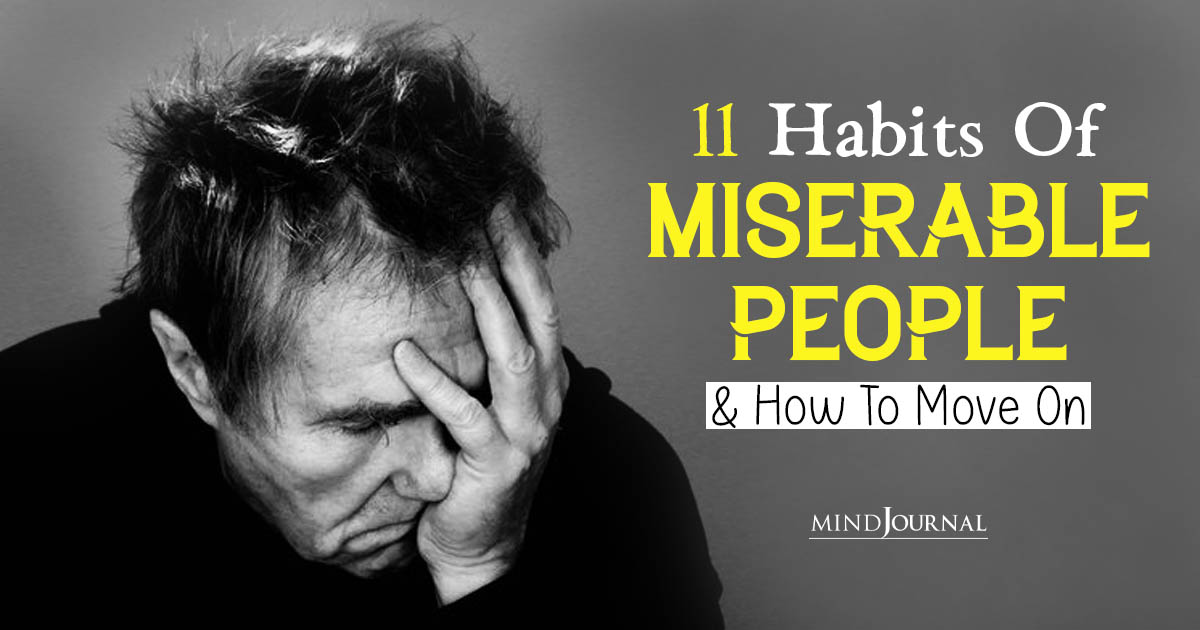Have you ever had to deal with a miserable person? If your answer is no, then you are one of the lucky ones, but if your answer is yes, then you know how exhausting it can be. This article is going to talk about the habits of miserable people and the habits of unhappy people so that you can stay away from them when needed.
To awareness and education for those who have experienced or are experiencing the cycle of narcissistic abuse from a partner, a family member, partner or a worksite, and even a government by providing the education, empowerment, and energetic skills to come out of the cognitive fog and into the light a survivor needs so they can create new habits and experience optimum health in every area of life.
I’m not happy to say this, but I’ve known a lot of miserable and evil people throughout my life. I have stumbled upon so many fake people who have questioned authentic, humble people’s integrity, and background and made offensive claims.
I have written on this topic on several occasions, but I have never fully explored the traits that these people usually have in common, as I never wished to waste my precision brainpower on Les Misérables.
But perhaps it is essential to understand and spot these people early on before they have a chance to enter our lives and cause havoc. There’s lots of research and articles on what makes people happy and unhappy. Lots and lots.
I’ve noticed that chronically unhappy people tend to have a few things in common — habits they follow and desperate life philosophies. And if they wish to stop being so damned miserable all the time, they must change those habits.
Here are ten of the worst habits that miserable people tend to follow.
Related: 15 Habits of Truly Miserable People
11 Habits Of Miserable People
1. They are very jealous, and they should be.
Miserable people are usually very angry people. They may smile and laugh on the surface, but their insides are filled with resentment and unresolved insecurities.
They are usually consumed by jealousy towards everyone around them. It’s an intense emotion and stems from helplessness and insecurity. Bad-mouthing others becomes their agenda. They don’t leave any stone unturned in defaming or trying to set others up for failure.
It might be instantly gratifying, but in the long run, the fire within them — burns them.

2. They are truly boring.
I’ve found out that miserable people have miserable lives. They usually tend to lead a dull, boring, and unadventurous life. They ensure to have a mundane existence, with no fun, no possibility or excitement, and then complain about it.
Watching TV, YouTube videos, and sitting on the couch eating chips is a big activity for them. They also tend to be addicted to other mediocre activities such as reading tabloid papers and celebrity magazines while on the toilet, having their stomach upset by the horrendous amount of unhealthy food.
Sometimes they stumble upon your article or social media, they leave a nasty comment or two to elevate the frustrations of their own lives. None of these activities (if you can call them that) stimulate or invigorate the body or mind.
3. They love to pick fights.
Miserable people love to make other people miserable. Misery loves company, right?
Every now and again, a highly miserable person often picks a fight out of the blue with someone close to them or someone they don’t know. They usually pick a fight about something absurd and completely unrelated to anything.
They often expect that person to respond with kindness and sympathy, and if they don’t, they’ll be quick to point it out.
If, however, the other party mentions it again, they’ll be sure to make it seem as if they don’t know what they are talking about and that they never intended for the situation to occur. They’ll quickly act to be hurt and be the victim, even though they started the fight.
This leads me to the next point…
Related: 7 Ways To Cope With People Who Want To Bring You Down
4. They blame others and play the victim.
They always have someone or their circumstances to blame. In their eyes, they are seldom wrong, and it is always someone else’s fault.
They don’t see the need to change anything about their beliefs, actions, behavior, personality, or thought process. They don’t take responsibility for their actions and own up to their mistakes.
They are always wallowing in self-pity. Highly miserable people let their perceived emotional or mental problem absorbs their very core.
For example, if they suffered from anxiety, ADHD, or depression, they’d define themselves as a disabled person, and they would be proud of that. They also try to make everyone know exactly what’s wrong with them. They make this the focus of their life, talking about it constantly and bringing it up at every opportunity.
They never do anything to improve their lives. Most miserable people go through life stagnant. Miserable people are addicted to unhappiness, and it becomes a way of life for them.
5. They get involved in other people’s lives.
They are the center point of all the drama in their lives and others. Their own life is too boring, so they try to enter other people’s lives in order to make their own miserable existence bearable.
They are here to carry any drama to new levels: exaggerating situations and consoling others with their own sorry stories about how life has dealt them a cruel hand.

6. They are envious of your success.
Rather than celebrating the successes of those around them or learning from others, unhappy people will be jealous and envious. They will typically wonder, “Why not me?” when they see someone reach heights.
“Why not you? Because while you were eating chips on the sofa watching reality-shows some of us were working hard. That’s why the success didn’t come to you.”
They will talk about how that person didn’t deserve it or perhaps even acted inappropriately to get it. They may even go to such lengths to discredit your achievements in secret because miserable people won’t outright say they are envious of other people’s successes.
They are cowards. Miserable people will never face you straight. They will try and attack you from the comfort of their little sofa because standing up and walking the distance to reach you would be too hard for them.
7. They are selfish.
Miserable people put themselves first (but project that other people are selfish, ironic, I know). A miserable person drives people away from them because of their negative behavior. Life is hard enough; most people don’t want to spend their time with Debbie Downer.
Miserable people only care about themselves and their own troubles—only their perspective matters. Being self-centered and only doing things for personal gain is an extreme habit of a highly miserable person.
Life is about having and gaining more and getting it no matter how they get it, even at the expense of others.
Related: 10 Common Habits of Bitter People And How to Avoid Them
8. They can’t and won’t change.
Miserable people don’t want to change, and they hate change. Miserable people hate anything new or different. Change requires effort, and miserable people usually don’t want to step outside of their comfort zone.
9. They are in denial.
Unhappy people are often in denial about their true circumstances in life. They use a series of defence mechanisms to prevent them from having to face various issues in their life. Denying that a problem exists does not make the problem go away.
As a result, an unhappy person has to increase the defense mechanisms in order to keep reality at bay.
10. They are prisoners.
I’ve realized that miserable people are prisoners of their own minds. Their minds will come up with plenty of exaggerated and unrealistic, and sometimes even crazy ideas that are unlikely to ever materialize, but when they are locked in a prison of thought, these ideas seem so real and tend to cause great suffering.

11. Poor Misérables.
They live with negative thoughts, which create anxiety and a whole load of mental pain because they live their thoughts in the mind as though they are really happening. It must be horrifying, right?
If, for example, they have a worrying thought about the future or are feeling frightened by the past, it is likely we will envision experiencing whatever traumatic event they are thinking about, which causes anxiety and suffering. Repeatedly.
Related: 7 Spirit Poisons: Things That Are Making You Unhappy In Life
Remember you are not miserable. There is a better way to live.
“Join TAR Network, a 501(c)3 dedicated to supporting victims of narcissistic abuse. TAR Network is focused on the prevention and intervention of TAR – Toxic Abusive Relationships. For more information, go here. By signing up for our newsletter you will receive free resources and links to free meetings and trainings that will help you rise above Toxic Abusive Relationships “
Written By Mila Originally Appeared On Partners In Men's Health



Leave a Reply